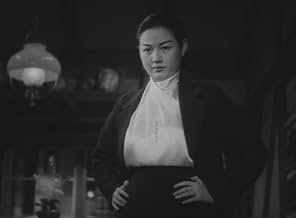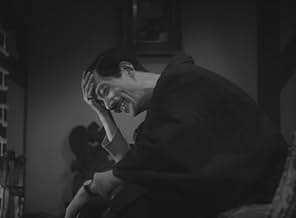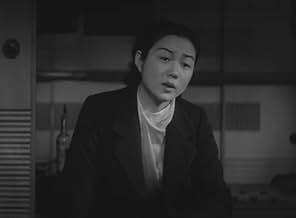Adicionar um enredo no seu idiomaAn affluent medical professor, Komiya, and his bossy wife, Tokio, are to look after Setsuko, their high-spirited niece from Osaka. Setsuko is a liberated woman who does what she wants, inclu... Ler tudoAn affluent medical professor, Komiya, and his bossy wife, Tokio, are to look after Setsuko, their high-spirited niece from Osaka. Setsuko is a liberated woman who does what she wants, including smoking, even though she is a minor. On Saturday, the professor does not feel like go... Ler tudoAn affluent medical professor, Komiya, and his bossy wife, Tokio, are to look after Setsuko, their high-spirited niece from Osaka. Setsuko is a liberated woman who does what she wants, including smoking, even though she is a minor. On Saturday, the professor does not feel like going to his weekend golf game, but his wife packs him off anyway. So he leaves his bag at t... Ler tudo
- Direção
- Roteiristas
- Artistas
- Direção
- Roteiristas
- Elenco e equipe completos
- Produção, bilheteria e muito mais no IMDbPro
Avaliações em destaque
That is why I was on the lookout and why I realized that the source for this one was probably Laurel & Hardy's SONS OF THE DESERT, with the uncle in the place of Mr. Laurel, the niece who talks him into a night on the town when his wife thinks he is playing a healthy game of golf in the rain, as Mr. Hardy. She also later urges him into standing up to Mrs. Bossypants.
Ozu does not offer us a straight comedy. This closest he comes to mimicking his sources is when the Uncle is supposed to be dressing down the niece. Ozu's work, typically, remains more sympathetic and warm than the straight comedy work on William Seiter's feature. Nonetheless, his admiration for his American contemporaries stands out.
Você sabia?
- CuriosidadesIn Kinema Junpo magazine in 2009 poll on the greatest Japanese films of all time, it ranked on 59th place.
Principais escolhas
Detalhes
- Data de lançamento
- País de origem
- Idioma
- Também conhecido como
- What Did the Lady Forget?
- Empresa de produção
- Consulte mais créditos da empresa na IMDbPro
- Tempo de duração1 hora 11 minutos
- Cor
- Mixagem de som
- Proporção
- 1.37 : 1
Contribua para esta página






























